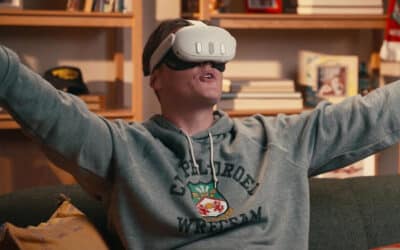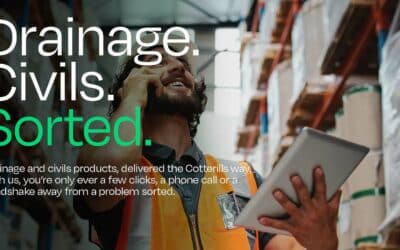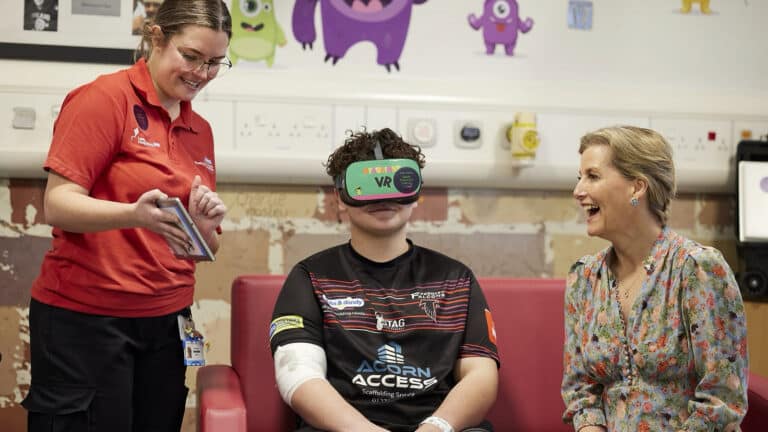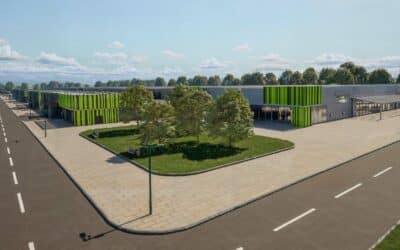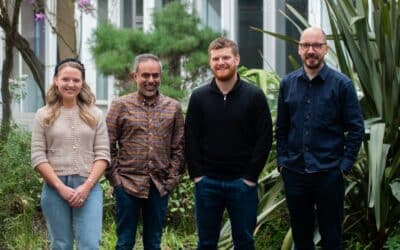Virtual reality (VR) technology is transforming the experience of young patients at Leeds Children’s Hospital, enabling them to undergo medical procedures without general anaesthetic and significantly reducing anxiety and pain.
The hospital’s Play Specialist Team, which has recently expanded to provide seven-day coverage thanks to Leeds Hospitals Charity’s £500,000 funding, is using VR headsets to help children cope with procedures ranging from blood tests to lumbar punctures. In a recent 20-month evaluation period, the service supported over 600 children, growing from 25 patients monthly to consistently helping 40-50 patients each month, with a success rate of 75-85 per cent.
Thirteen-year-old Micah, who has used VR during multiple procedures including lumbar punctures, describes the impact: “When I came out, I was just beaming with pride. Using VR, I could barely feel anything – just like someone’s finger pushed on my back – and I didn’t need general anaesthetic, which was a huge relief.” Other patients have shared similar experiences, with one noting: “I love playing games more than I hate needles” and another stating “I would 100 per cent recommend VR to other patients as it allows you to escape the hospital environment.”
READ MORE: Six-figure boost for Manchester virtual production company
Lucy Dickinson, play specialist and VR lead at Leeds Children’s Hospital, said: “VR is mainly used as a distraction tool for lots of different procedures. It can be a blood test, a cannula, or more invasive procedures such as PICC lines or lumbar punctures. It enhances the hospital experience while ensuring successful procedures.”
The hospital currently has four VR headsets with a fifth on the way, funded by Leeds Hospitals Charity, Starlight charity, and private family donations. The DR.VR software from Welsh biotechnology company Rescape offers three sections: relax, play, and explore, allowing children to immerse themselves in calming environments, educational content, or engaging games while remaining still for their procedure. The games are specially designed so children only need to move their heads gently while keeping their bodies stationary.
The Play Specialist Team has also created custom content for the VR headsets, including six preparation videos funded by Leeds Hospitals Charity that familiarise children with hospital environments like MRI rooms, X-ray departments, and radiotherapy before their visits. These videos feature play specialists guiding children through what to expect during their visit, helping reduce anxiety about unfamiliar hospital spaces.
The success of the VR programme has gained significant recognition, with the team presenting their findings internationally at Colorado Children’s Hospital, to an American charity focused on child play in healthcare, and at the first Health Play Specialist conference in London. The innovative approach has also attracted royal attention, with the Duchess of Edinburgh visiting to witness a VR demonstration with a young patient. Leeds Children’s Hospital is increasingly recognised as leading innovator in this area, with the team providing training to other NHS trusts across the UK.
The hospital has also introduced a digital ‘VIP Pass’ system that flags patients with procedure-related anxiety in medical records, ensuring all clinicians follow personalised play-led treatment plans. This systematic approach, combined with the recent expansion to a seven-day play service, means more children will benefit from these specialised interventions. From initially supporting just four hospital areas, the VR service now reaches patients across 11 different departments, including oncology, dialysis, radiology, and neurology.
Laura Whelan, head of nursing for children’s nursing at Leeds Teaching Hospitals NHS Trust, said: “You can’t really overstate the difference this makes. We have seen children who were previously terrified of needles have procedures without flinching during one of Lucy’s sessions. What were once extremely distressing experiences for some patients have been transformed into manageable moments for both children and their families.”
Dickinson added: “Play brings a certain part of normality into the child’s life, whereas hospital can be really scary and daunting. VR assists us in our role as Health Play Specialists. The children absolutely love it, and it has helped so many children overcome what we might think is simple – a blood test or a cannula.”

